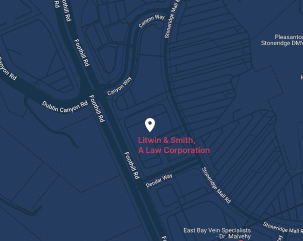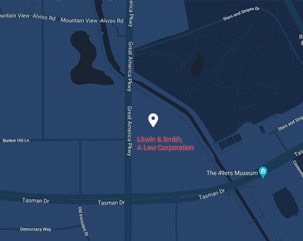What is H1B Season?
What is H1B Season? That time of year we must prepare H1B visa petitions to meet the April 1, filing deadline. There is a 65,000 visa limit to the number of regular H-1B visas and 20,000 H1B visas for persons with a U.S. Master’s degree or higher available each year. Because of those limits, last year, all 85,000 or so numbers were obtained on the first day of April (employers were allowed four more days to get their petitions in). Since more petitions were filed than numbers were available, there was a lottery. Approximately, 25% of the employers who had diligently prepared and filed H-1B petitions had their petitions returned.
H1B Cap
The cap (the numerical limitation on H-1B petitions) for FY 2015 is 65,000. In addition, the first 20,000 H-1B petitions filed on behalf of individuals with U.S. master’s degree or higher are exempt from the fiscal year cap of 65,000.
Last Year
U.S. Citizenship and Immigration Services (USCIS) reached the statutory H-1B cap of 65,000 for fiscal year (FY) 2015 within the first week of the filing period. USCIS also received more than 20,000 U.S. Masters Cap H-1B petitions filed on behalf of persons with a U.S. advanced degree.
U.S. Masters beneficiaries get to double dip!
The agency conducted the selection process for advanced degree exemption petitions first. All advanced degree petitions not selected were part of the random selection process for the 65,000 limit.
USCIS received approximately 172,000 H-1B petitions during the filing period, including petitions filed for the advanced degree exemption. On April 7, 2015, USCIS used a computer-generated random selection process (commonly known as a “lottery”) to select a sufficient number of petitions needed to meet the caps of 65,000 for the general category and 20,000 under the advanced degree exemption limit. For cap-subject petitions not randomly selected, USCIS will reject and return the petition with filing fees, unless it is found to be a duplicate filing.
First-5-Business-Day Rule for H1Bs Received at USCIS
The U.S. Citizenship and Immigration Services (USCIS) has a five-business-day filing period of April 1-6, 2015. This is because of a released a prediction, based on external feedback, that the fiscal year (FY) 2016 cap limit may be exceeded during the minimum required. So, if we receive your petition documents back April 3, we can file for delivery April 6, you may still make the cap. Of course, if the cap is not reached April 1 –6, you are also still in the cap.
Under 8 CFR §214.2(h)(8)(ii)(B) the USCIS must allow for the filing of H1B cap-subject cases for a minimum of the first five business days in April. This is a special USCIS rule for the treatment of H1B cap filings. For the FY2016 cap filings, this period runs from April 1 through April 6, 2015.
If the cap is exceeded during this five-day period, the USCIS will conduct a lottery of all the cases filed in the five-day filing window. This lottery will randomly select the cases that will continue being processed against this year’s cap. Cases not selected in this lottery will be rejected, and the filing fees will not be cashed.
Because of the five-business-day rule, a case filed on April 2nd, 3rd, 4th, or 7th has the same chance of receiving a cap number as a case filed on April 1st. Of course, it is best to aim for USCIS receipt by the 1st, to allow for any unexpected delays in delivery. If the cap is not reached during the first five business days in April, the USCIS will continue to accept cases on a day-by-day basis, until the H1B quota has been exhausted.
USCIS Anticipates Reaching Cap by April 6, 2015
When the USCIS anticipates the cap will be reached within the first 5 business days of H1B Cap filing the USCIS will alert the public that indications are that the volume of H1B filings will exceed the cap. This USCIS provides this prediction based upon information obtained from stakeholders (those who have an interest and involvement this matter). Although not specifically stated, the stakeholders here likely include major U.S. employers with a history of utilization of the H1B program and their legal representatives. This is consistent with rumors and anecdotal information within the immigration community.
If you have any questions, or are interested in filing an H-1B petition, please contact our office at . It is important to begin preparations for filing very soon.
8 CFR §214.2(h)(8)(ii)
(Emphasis added)
(B) When calculating the numerical limitations or the number of exemptions under section 214(g)(5)(C) of the Act for a given fiscal year, USCIS will make numbers available to petitions in the order in which the petitions are filed. USCIS will make projections of the number of petitions necessary to achieve the numerical limit of approvals, taking into account historical data related to approvals, denials, revocations, and other relevant factors. USCIS will monitor the number of petitions (including the number of beneficiaries requested when necessary) received and will notify the public of the date that US CIS has received the necessary number of petitions (the “final receipt date”). The day the news is published will not control the final receipt date. When necessary to ensure the fair and orderly allocation of numbers in a particular classification subject to a numerical limitation or the exemption under section 214(g)(5)(C) of the Act, USCIS may randomly select from among the petitions received on the final receipt date the remaining number of petitions deemed necessary to generate the numerical limit of approvals. This random selection will be made via computer-generated selection as validated by the Office of Immigration Statistics. Petitions subject to a numerical limitation not randomly selected or that were received after the final receipt date will be rejected. Petitions filed on behalf of aliens otherwise eligible for the exemption under section 214(g)(5)(C) of the Act not randomly selected or that were received after the final receipt date will be rejected if the numerical limitation under 214(g)(1) of the Act has been reached for that fiscal year. Petitions indicating that they are exempt from the numerical limitation but that are determined by USCIS after the final receipt date to be subject to the numerical limit will be denied and filing fees will not be returned or refunded. If the final receipt date is any of the first five business days on which petitions subject to the applicable numerical limit may be received (i.e., if the numerical limit is reached on any one of the first five business days that filings can be made), USCIS will randomly apply all of the numbers among the petitions received on any of those five business days, conducting the random selection among the petitions subject to the exemption under section 214(g)(5)(C) of the Act first. (Revised 3/24/08; 73 FR 15389 ) (Revised 5/5/05; 70 FR 23775 )

